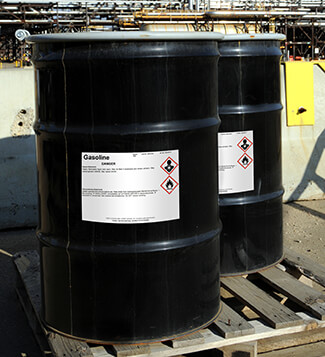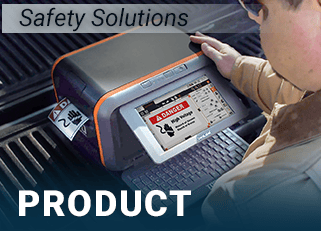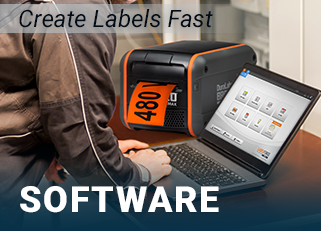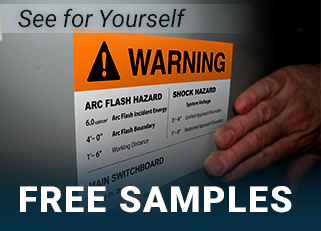Clearing up GHS/HazCom Miscommunication
03
February,
2023
2 MINUTE READ

Following OSHA's HazCom chemical standard, which aligns with the Globally Harmonized System (GHS), can be confusing in some workplaces. When employers have chemicals in the workplace, it's important to follow the latest safety best practices, train workers to follow chemical procedures, and keep chemical safety communication consistent.
Chemical Safety Fails
In 2019, the second-most violated OSHA standard was Hazard Communication. These types of violations include chemical safety. Some reasons for HazCom citations include failing to maintain copies of the required Safety Data Sheets in the workplace, not providing training or following chemical safety, and label miscommunication.
"Employers who use hazardous chemicals in their workplaces are required to train employees on chemical safety data sheets and labels, and incorporate safety controls to protect employees from those hazards," said OSHA officer Ramona Morris, after a tragic incident in 2018. A company was storing unlabeled compressed gas without ventilation, according to the OSHA report. A worker opened the container door, causing a fatal explosion.
While OSHA aims to make chemical safety and labeling easier by aligning with GHS, it still is a bit behind. OSHA wrote its HazCom Standard to follow GHS Revision 3, while the current version of GHS stands at Revision 8. Since the rule was published, OSHA has made plans to update the HazCom 2012 standard to align with GHS updates, but those plans are on the backburner since more attention on the novel coronavirus (COVID-19) pandemic is necessary.
Improve HazCom Plans
GHS labels may be more complex than the basic chemical labels that were used a decade ago. GHS labels show all the critical information for describing hazards and necessary precautions. Yet, labels can't carry all the work when it comes to safety.
 Here are a few important tips for better chemical safety:
Here are a few important tips for better chemical safety:
- Safety Data Sheets: Every chemical has a safety data sheet (SDS) that its manufacturer issues. Gather SDSs for each chemical and keep them where workers can find them easily.
- Labeling: Chemical labels should have a product identifier, supplier information, precautionary information, pictograms, and more. Follow the format of OSHA's GHS/HazCom Quick Card.
- Training: What some workplaces forget is that even temporary workers need HazCom training. Ensure temporary workers understand chemical labels and know where to find SDSs.
- Program: A chemical safety program needs to be in place, whether in paper or digital form. It also needs to be available to employees at all times.
- Inspection: Walk around and inspect chemical safety, from program details to training to chemical labeling.
Whether preparing for now or the future, employers should ensure their compliance with the current HazCom Standard requirements and make modifications as a necessary as part of continuous improvement plans. Workers need to follow best practices for maintaining compliance, and all hazards need to be communicated through safety labels, signs, and floor marking. Workplaces can break down some of the confusion by keeping workers up to date on the latest in OSHA HazCom safety and compliance standards.
There are a variety of products and service options to help. Use SDS worksheets, GHS/HazCom compliance assistance guides, and videos, as well as intuitive workplace labeling software, to make adopting and adhering to GHS changes faster and easier. Chemical management solutions help workplaces reach safety and regulatory goals faster.
Our free HazCom 2012 Guide provides a thorough overview of OSHA's chemical labeling rules, elements of a HazCom 2012 label, and how to meet requirements. Download it today!
RELATED RESOURCES

Tips for Better Chemical Safety Management
Workplace chemical safety is all about understanding the risks and following proper protocol. Train and ...
Read
GHS-Compliant Safe Storage of Hazardous Chemicals
The Importance of the GHS When working with and storing hazardous chemicals, steps must be taken to ensure ...
Read
HazCom Plans Crucial in Preventing Employee Exposure
Several workplace chemical exposures have prompted OSHA to remind companies of proper respirator and ...
Read.png)


